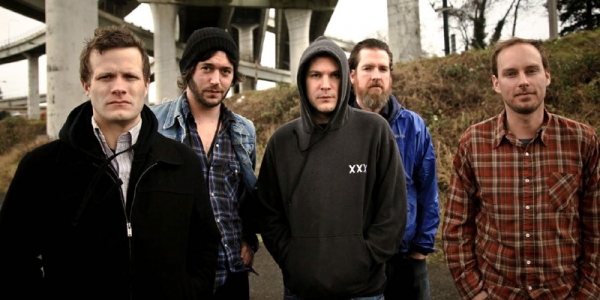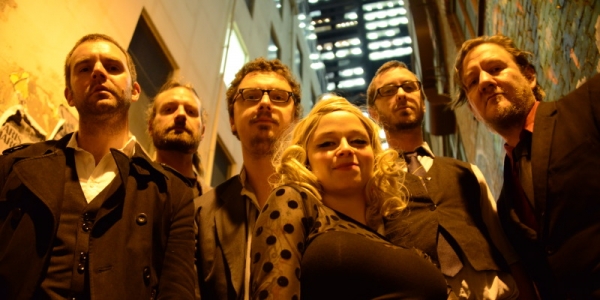However bringing their records to life in a live setting, including their most recent, 2011’s Deep Politics, is a whole different beast, admits Amos.
“To be totally honest, live music is ruled by shallow morals. This is a pretty negative way of saying it, but there are certain ways to communicate to an audience that something is happening onstage. They’re pretty simple too; whenever people turn up the volume, people notice and go ‘Yay!’ People love tricks. Most bands, when they put together a set, they know what song they have to end with, you know what song you have to start with. You’re allowed to lose the crowd for a bit, but you still don’t want them to sober up too much and realise what’s happening. There’s a balance between how much you can experiment and how much you have to return to that idea of pop music.”
While his outlook on performing live may sound tempered, Amos simply understands how important playing live actually is. It’s a responsibility he doesn’t take lightly.
“When you’re dealing with the live setting, you’re auditioning in a way,” he muses. “You’re struggling. It can be a war. You’re sweating, you’re trying to hear what your band is saying and you’re never going to hear what the audience is hearing. It’s a completely different thing. It’s a completely different vantage point and often you can’t enjoy it because you’re too focused on your responsibilities.”
The responsibilities Amos outlines are many; for Grails, experimentation is at the top of their list of priorities. When it’s put to Amos that there’s a certain element of unpredictability in the music of Grails, he agrees, perhaps for the only time throughout our interview. Yet when asked if the band employs that sort of unpredictability when playing live, Amos takes a different approach. He acknowledges not only that there’s an element of selfishness in the band’s music, but that when playing live, Grails is simply speaking a different language.
“On our last European tour, we realised that our music doesn’t just lull you in and then repeats enough to keep you in that comfortable zone. Our music can totally change its mind, sometimes drastically. We hadn’t noticed that earlier because we’re such a fragile arrangement. We’re not very objective about it because sometimes we’re just barely hanging on. We need to generate so much spontaneity just to keep things barely interesting. We kind of disregard the notion that the audience is coming to our shows to be entertained. We’re trying to entertain ourselves, so perhaps it’s more music for musicians. There’s a different language we’re trying to speak onstage that we can’t always be sure the audience will understand. There’s a certain selfishness when we play live.”
Experimentation being one of Grails’ credos, it would be tough to find a degree of linear agreement within Grails discography. With every release, from their 2004 debut, The Burden Of Hope, through a number of EP’s, compilations and their aforementioned LP’s, Grails have stuck with one common goal: continuing to take chances within the recording process and experiment with different sonic landscapes. No two Grails releases are alike; it’s become the band’s calling card, though when this keen sense for experimentation looms as large as it does for the Portland, Oregon four-piece, assembling to begin writing and recording can present challenges.
“In terms of deciding where we’re going to go with our sound, we try not to dress things up too much,” he states quite blatantly. “It’s up to the listener to piece things together on their own. Sometimes we can assemble songs backwards, but whatever we do, we try not to hide too much. Up until the last month of the recording, you have to ask yourself, ‘Are these songs any good?’ You think you have to manipulate every piece so it sounds more cohesive, but if you pull these records apart, they’re very chaotic. Most music is very planned out. Grails is not trying to be like that. We’re into the most dangerous forms of experimentation and sometimes pulling it back at the last second.”
By the end of our conversation, Amos has lightened up, but only slightly. After we finish, he’ll return to decoding a frustrating mixing session. It appears as if Amos and Grails don’t do anything half-assed. There’s an honesty in the music of Grails that is incredibly engaging. As long as you get them on the right day, of course.
“We don’t really do vocal music, but we’re into free-thinking music. Mood can also govern a lot. But again, we look towards things like soundtracks for inspiration, because that’s very much what we’re trying to do.”
BY JOSHUA KLOKE







